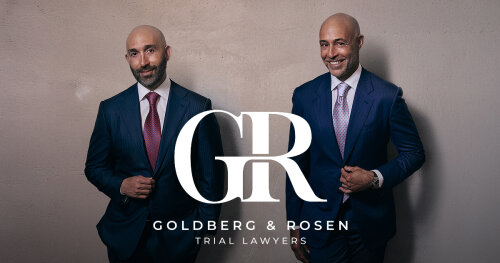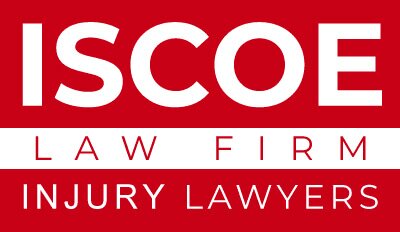Best Insurance Lawyers in Miami
Share your needs with us, get contacted by law firms.
Free. Takes 2 min.
List of the best lawyers in Miami, United States
About Insurance Law in Miami, United States:
Insurance law in Miami, United States, is a branch of law that governs insurance policies and contracts. It covers a wide range of issues related to insurance, including claims, coverage disputes, policy interpretation, and bad faith practices. Insurance law in Miami is regulated at both the state and federal levels, with specific statutes and regulations that govern how insurance companies operate and how policyholders are protected.
Why You May Need a Lawyer:
There are several situations where you may need a lawyer specializing in insurance law in Miami. Some common instances include filing insurance claims, disputing denied claims, negotiating settlements with insurance companies, understanding complex insurance policies, and navigating insurance regulations and laws. A lawyer can provide guidance, representation, and legal advice to help you protect your rights and ensure you receive the coverage and compensation you are entitled to under your insurance policy.
Local Laws Overview:
In Miami, insurance law is governed by Florida state statutes and regulations, as well as federal laws that may also impact insurance policies and practices. Some key aspects of local laws that are particularly relevant to insurance in Miami include the Florida Insurance Code, which sets forth requirements for insurance companies and policyholders, and the Florida Department of Financial Services, which regulates insurance companies and monitors their compliance with state laws.
Frequently Asked Questions:
1. What types of insurance are commonly used in Miami?
In Miami, common types of insurance include auto insurance, homeowners insurance, health insurance, life insurance, and business insurance.
2. What should I do if my insurance claim is denied?
If your insurance claim is denied, you should consult with a lawyer specializing in insurance law in Miami. They can review your policy, help you understand your rights, and represent you in appealing the denial.
3. How can I make sure I am adequately covered by my insurance policy?
To ensure you are adequately covered by your insurance policy, you should carefully review the terms and conditions of the policy with a lawyer to ensure you understand the coverage limits, exclusions, and other important provisions.
4. What is the role of the Florida Department of Financial Services in insurance regulation?
The Florida Department of Financial Services regulates insurance companies in Miami and monitors their compliance with state laws to protect policyholders and ensure fair practices in the insurance industry.
5. Can I negotiate with my insurance company without a lawyer?
While you can negotiate with your insurance company without a lawyer, having legal representation can help ensure your rights are protected and that you receive fair treatment and compensation.
6. What are some common reasons insurance claims are denied?
Insurance claims may be denied for reasons such as policy exclusions, insufficient evidence of loss, late filing, and misrepresentation of facts. A lawyer can help you understand why your claim was denied and how to appeal the decision.
7. How can I file a complaint against my insurance company?
If you have a complaint against your insurance company, you can file a complaint with the Florida Department of Financial Services or consult with a lawyer specializing in insurance law in Miami for guidance on how to proceed.
8. Are there deadlines for filing insurance claims in Miami?
Yes, there are deadlines for filing insurance claims in Miami, which vary depending on the type of insurance and the circumstances of the claim. It is important to review your policy and consult with a lawyer to ensure you meet all deadlines for filing claims.
9. What is the difference between first-party and third-party insurance claims?
First-party insurance claims are claims filed by the policyholder against their own insurance company, while third-party claims are claims filed by someone else against the policyholder's insurance company. A lawyer can help you understand the differences and how to navigate each type of claim.
10. How can I find a reputable insurance lawyer in Miami?
You can find a reputable insurance lawyer in Miami by asking for recommendations from friends, family, or other professionals, researching online, checking lawyer directories, and scheduling consultations to interview potential lawyers and find the best fit for your needs.
Additional Resources:
For additional resources related to insurance law in Miami, you may contact the Florida Department of Financial Services, the Florida Bar Association, and the American Bar Association's Insurance Law Section. These organizations provide information, resources, and referrals to legal professionals specializing in insurance law.
Next Steps:
If you require legal assistance in insurance law in Miami, it is recommended to schedule a consultation with a lawyer specializing in insurance law to discuss your situation, rights, and options. A lawyer can provide valuable guidance, representation, and support to help you navigate insurance issues and protect your interests.
Lawzana helps you find the best lawyers and law firms in Miami through a curated and pre-screened list of qualified legal professionals. Our platform offers rankings and detailed profiles of attorneys and law firms, allowing you to compare based on practice areas, including Insurance, experience, and client feedback.
Each profile includes a description of the firm's areas of practice, client reviews, team members and partners, year of establishment, spoken languages, office locations, contact information, social media presence, and any published articles or resources. Most firms on our platform speak English and are experienced in both local and international legal matters.
Get a quote from top-rated law firms in Miami, United States — quickly, securely, and without unnecessary hassle.
Disclaimer:
The information provided on this page is for general informational purposes only and does not constitute legal advice. While we strive to ensure the accuracy and relevance of the content, legal information may change over time, and interpretations of the law can vary. You should always consult with a qualified legal professional for advice specific to your situation.
We disclaim all liability for actions taken or not taken based on the content of this page. If you believe any information is incorrect or outdated, please contact us, and we will review and update it where appropriate.
Browse insurance law firms by service in Miami, United States
Miami, United States Attorneys in related practice areas.











